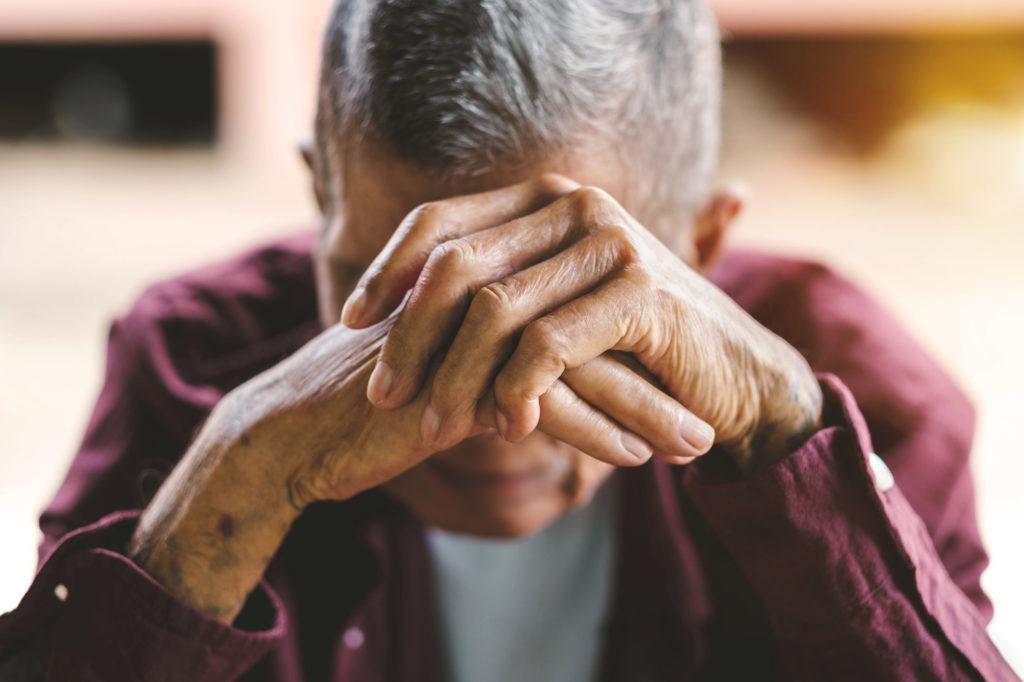
Let’s get serious for a minute. It’s not a fun topic, but it’s something that happens.
The Special Investigations Division of the House Government and Reform Committee found that 30 percent of U.S. nursing homes were cited for abuse in a two year time period.
That’s pretty eye opening especially if you have a loved one in a nursing home.
If you have someone in a nursing home, it’s important to know the signs and symptoms of elder abuse and neglect. Here’s what you need to look for and tips on how to handle this serious problem.
Types of Elder Abuse
When you think of abuse, you may automatically think of physical abuse, but unfortunately, there are other types of abuse. Elders are vulnerable to physical, emotional, and sexual abuse.
They may also be the target of financial exploitation and healthcare fraud.
You want to make sure your loved one is getting the proper care and not neglected. Patients don’t normally tell their family if they are victims, and they may not know either.
Below are signs of abuse.
Physical Signs of Abuse
Many times you can notice signs of physical abuse. Here are things to look for:
- Bruising
- Scrapes or cuts
- Bandages
- Bite marks
- Welts
- Any odd marks on the body
- Burns
- Missing hair
- Limping
- Unable to use hand
- Torn clothing
- Bloody or messy underwear
If the caregiver refuses to let you be alone with the patient, this could also be a sign that something is wrong. If you see any of the signs above, it’s time to start investigating and talking to your loved one.
Behavioral Evidence of Abuse
Sometimes you can’t physically see signs of abuse, but there are other signs.
Emotional abuse can be just as serious, but can be harder to detect. If a patient is insulted, humiliated, threatened, intimidated, harassed, or belittled, he or she is a victim of emotional abuse.
You should look for the following changes in your loved one’s behavior for signs of abuse:
- Depression
- Withdrawal from family
- Anxiety
- Aggression
- Acting scared or quiet around a certain staff member
- Trying to run away
- Aversion to being touched
- Scared of turning off the light
- Stuttering
- Rocking or head banging
Some behavioral changes could be from the natural aging process or other disease symptoms. You know your loved one well, so you know if there is a red flag worth investigating.
Signs of Neglect
Caregivers can neglect patients in many ways by not changing clothing when necessary, failing to turn the patient over, not helping the patient get the proper exercise, or leaving the patient alone for too long.
Some of the symptoms above could also be signs of neglect, which is just as serious as abuse. Here are some physical symptoms to look for if you don’t think the patient is receiving the proper care:
- Bedsores
- Weight loss
- Frequent soiled clothes or undergarments
- Rashes
- Body odors
- Lice or scabies
- Insect bites
- Dehydration
- Untreated disease symptoms
- Wrong clothes (i.e. short sleeves in a cold room)
- Dirty skin
- Weakness because there is no exercise
The patient’s condition may change naturally from aging or declining health. However, a doctor can confirm if these symptoms are unusual for the patient’s condition.
Sexual Abuse
This is definitely a hard topic to address, but unfortunately, it does happen. Here are signs of sexual abuse:
- Genital infections
- Bruising close to the genitals or breasts
- Stained, bloody or torn underwear
- Vaginal or anal bleeding that is not related to medical condition
If you see any of these symptoms, you should take action immediately (look for more information on how below).
Financial Exploitation of the Elderly
An elderly person is particularly vulnerable to financial exploitation. Here are things to look for:
- Unexplained bank account withdrawals
- Changes in power of attorney, life insurance policies, or wills
- Missing cash from the patient’s room
- Adding an authorized user to credit cards
- Unusual goods, services, or subscriptions the elder would not normally want or subscribe to
If you notice any of these things, it’s time to investigate and freeze accounts if necessary.
Healthcare Fraud
If you think the healthcare personnel is committing fraud to get money from the healthcare insurance, watch for these signs:
- Too much or too little medication
- Duplicate bills
- Insufficient staff for care
- Not getting all the care that has been paid for
It’s important to watch all the medical statements and keep files, so you can make sure your loved one is getting what he or she paid for.
What to Do if You See Signs and Symptoms of Elder Abuse
1. Speak to Your Loved One
First, you should try to talk to your loved one. He may be scared to discuss the problem out of fear, or she may blame herself. The patient may also be too embarrassed to talk about what happened.
You can try to ask questions in normal conversation. Be sure you speak gently to the elder because he may feel you are blaming him for what happened. Remind the elder that you love her and want to help protect her.
2. Question Staff Members and Doctors
Address your observations with the medical staff. Ask the doctor to do an examination to see if some of these symptoms could be related to the patient’s medical condition. See a doctor that is not part of the nursing home’s staff for an outsider’s point of view.
Talk to different people and not just one person at the nursing home. If you do not get inconsistent answers, this could be a problem.
3. Report Suspected Abuse
You can report your suspicions to your state’s Adult Protective Services to investigate elder abuse. If you suspect the patient is being hurt intentionally or in serious danger, contact the police.
You can also contact your state to investigate the long-term care facility.
Medicare’s website has links to help you find your state’s agency for nursing home complaints.
4. Contact an Attorney
If you want help collecting all the information to protect your loved one, contact a nursing home attorney for a consultation. These professionals specialize in these cases and can help you resolve the problem.
Final Thoughts
Signs and symptoms of elder abuse is a serious topic. Protect your loved one! Follow your instinct – it’s usually right.
Now if you want some lighter reading on a less stressful topic, check out things to remember to be happy.
Browse our other curious topics, like the best new comedy movies, to take some time to yourself and decompress for a bit.

